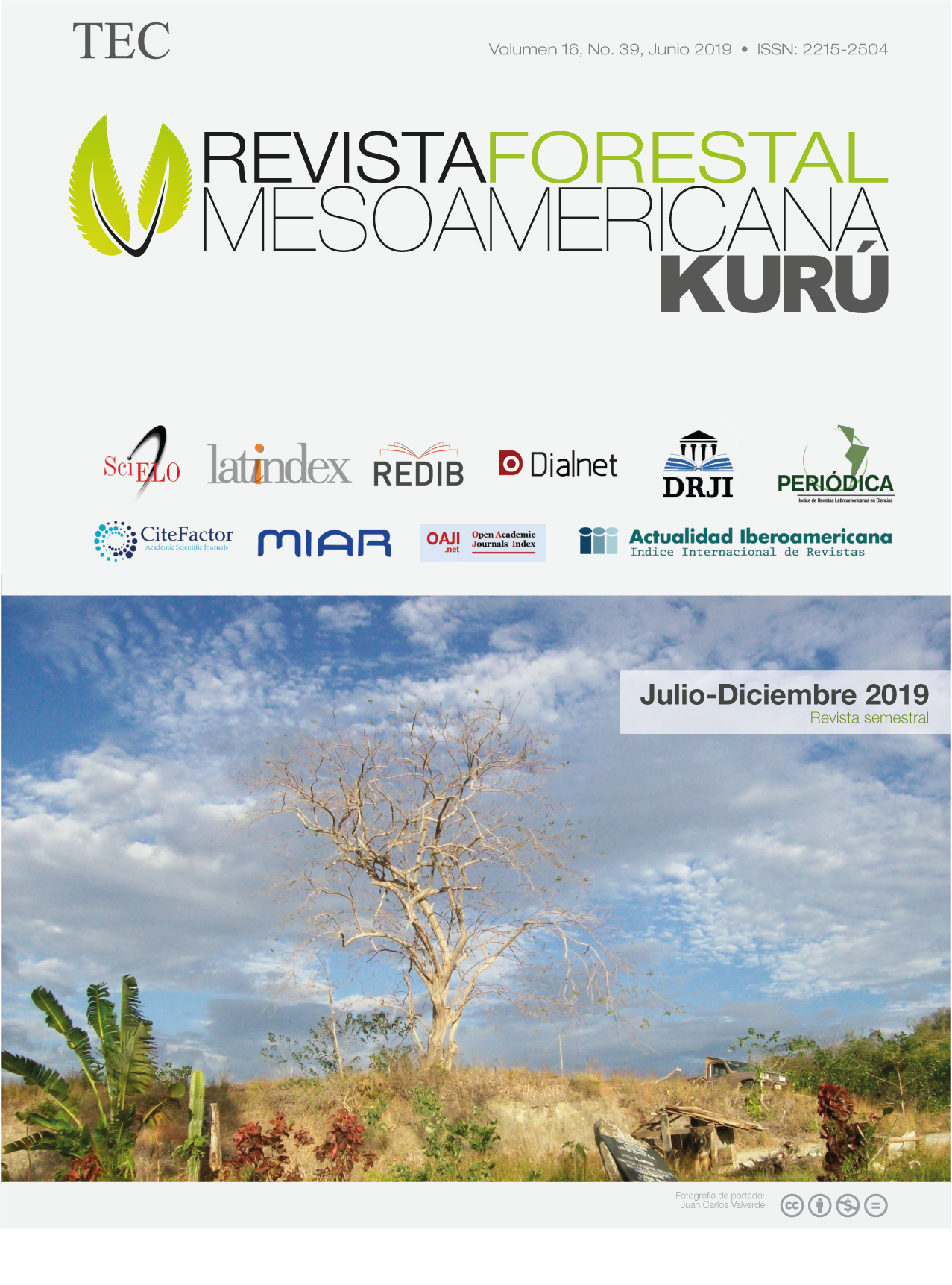Timber skidding system for forest plantations combining water buffaloes (Bubalus bubalis bubalis Simpson, 1945) with farm tractor
Main Article Content
Abstract
The analysis of a two-phase timber skidding system was carried out in Ticabán town, located in Pococí, Limón, Costa Rica and its main objective was to evaluate two extraction methods: water buffaloes and agricultural tractors. Operation efficiency was determined through a time and motion study and production for each day evaluated was calculated, for this, all log´s volume hauled by the buffaloes and by the agricultural tractor was calculated using Smalian´s formula. A total of 12 working days of timber skidding with buffaloes and 6 with farm tractor were evaluated. The first timber skidding phase carried out with water buffaloes reported an average efficiency of 77,44 % and an average production of 1,73 m3/programmed hour, values that surpass those reported in similar research. In contrast, average efficiency and production reached using the agricultural tractor during the evaluation was 88,10 % and 3,16 m3/programmed hour, respectively. These results suggest that timber extraction techniques in two phases maximizes the advantages of the technologies used in each of them (buffaloes and farm tractor) and minimizes their disadvantages, increasing efficiency and the total production of the operation.
Article Details
Revista Forestal Mesoamericana Kurú is licensed under CC BY-NC-ND 4.0
Al enviar un artículo a la Revista Forestal Mesoamericana kurú (RFMK), los autores ceden los derechos patrimoniales a la editorial de la RFMK una vez su manuscrito haya sido aprobado para publicación, autorizando a la RFMK a editarlo, reproducirlo, distribuirlo, y publicarlo en formato físico y/o electrónico. La titularidad de los derechos morales sobre los trabajos objeto de esta cesión seguirá perteneciendo a los autores.

